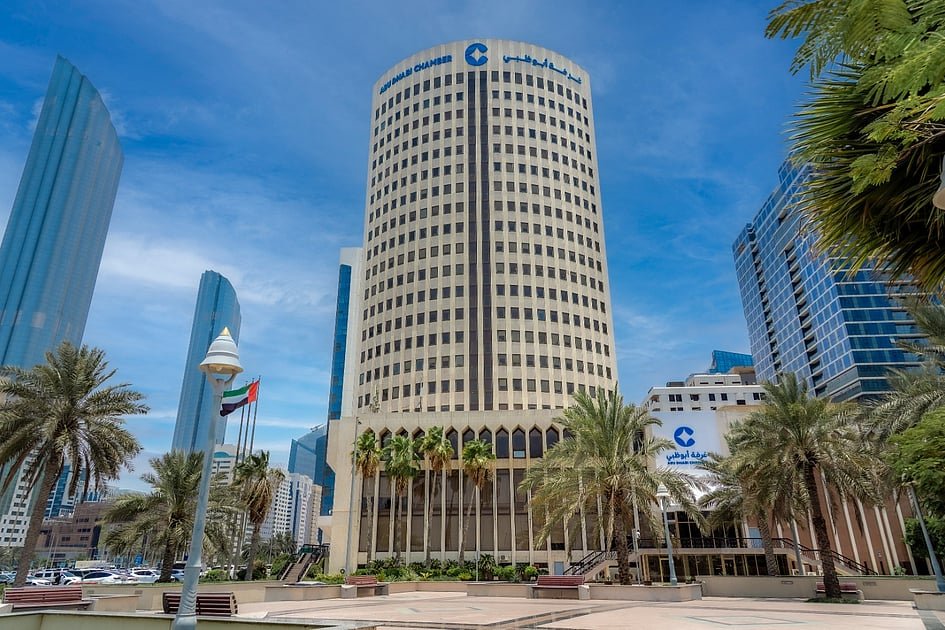Abu Dhabi’s entrepreneurial landscape is undergoing a generational shift as thousands of young innovators pour into the city’s business ecosystem, marking one of the fastest expansions in youth enterprise in the region.
The Abu Dhabi Chamber of Commerce and Industry reported that youth-led businesses registered with the chamber soared by an extraordinary 97.8 per cent between 2023 and 2024, a surge that reflects both the confidence of a new generation and the emirate’s increasingly magnetic appeal as a hub for startups and technology-driven ventures.
According to the chamber’s latest data, more than 21,240 members aged between 18 and 35 are now affiliated with the organisation, with combined registered capital exceeding Dh14.9 billion. Significantly, the membership is almost evenly split between Emiratis, who make up 49 per cent, and expatriates, who account for 51 per cent — evidence of the cosmopolitan character of Abu Dhabi’s economy and its ability to attract diverse talent. Trade activities dominate youth-led enterprises, representing 40 per cent of operations, followed by construction, administrative services, hospitality and food businesses, illustrating a healthy mix of traditional and new economy ventures.
Mansoor Al Sayegh, president of the Abu Dhabi Youth Business Council, described the expansion as proof that the emirate is becoming an accelerator of ideas and innovation. “The Abu Dhabi Youth Business Council serves as a vital platform enabling young entrepreneurs to transform their ideas into impactful ventures that drive economic growth. We believe youth should not wait for opportunities but shape them with fresh thinking and bold ambition, and our programmes and specialised initiatives are designed to achieve this,” he said.
He added that the council’s strategy rests on five pillars: representing youth interests, shaping legislation, building skills, promoting partnerships, and creating new business opportunities — all underpinned by the chamber’s long-term commitment to nurturing talent.
The rise in youth entrepreneurship is not an isolated phenomenon. It is tightly interwoven with Abu Dhabi’s broader ambition to position itself as a global leader in innovation, startups, and technology-driven industries. The emirate has already invested heavily in creating fertile ground for entrepreneurs, with initiatives like Hub71 — the government-backed global tech ecosystem that has attracted over 315 startups since its launch in 2019, raising more than Dh5.4 billion in funding. Many of these startups have been founded or scaled by young entrepreneurs who benefit from incentives such as subsidised housing and office space, mentorship, and access to global investors.
Recent data shows that venture capital flows into the UAE’s startup ecosystem crossed $2 billion in 2024, with Abu Dhabi accounting for a sizeable share. Key sectors attracting funding include fintech, healthtech, climate tech, and artificial intelligence, aligning with Abu Dhabi’s strategic priorities. The emirate has also established a powerful presence in deep tech and life sciences, attracting global research partners and building clusters around new industries. The presence of sovereign wealth funds such as Mubadala, which has been at the forefront of investing in disruptive technologies globally, further enhances Abu Dhabi’s role as a magnet for capital and innovation.
Al Sayegh noted that the youth council is also providing targeted support to help young founders navigate the complex early stages of their journey. Free consultancy services for business setup, assistance with commercial licensing, complimentary membership in the Abu Dhabi Youth Business Gateway, and facilitation of international expansion are among the initiatives designed to ease entry barriers. These programmes reflect the chamber’s recognition that startups often need more than capital — they require ecosystems of mentorship, regulation, and global connectivity to thrive.
Abu Dhabi’s emergence as a startup hub is also being reinforced by the government’s pro-business reforms. Recent changes in company laws, more flexible visa policies for entrepreneurs, and reduced costs of setting up ventures have played a crucial role in attracting young founders. The emirate’s embrace of artificial intelligence, reflected in the establishment of the AI-focused Hub71+ specialist ecosystem earlier this year, further signals that Abu Dhabi is determined to build an innovation economy where youth can play a defining role.
Analysts note that the growth of youth-led enterprises in Abu Dhabi is aligned with the UAE’s wider vision to empower its population and diversify beyond oil. By 2030, the country aims to position small and medium-sized enterprises, many of which are youth-driven, as contributors to more than half of the non-oil economy. In this context, the doubling of youth-led businesses within just one year sends a powerful signal of momentum.
Industry experts believe Abu Dhabi’s mix of strong financial support, inclusive policies, and an expanding innovation infrastructure is already setting the stage for many of these startups to scale regionally and internationally. “For Abu Dhabi, the challenge now is not only to sustain this pace of growth but also to ensure that youth-led ventures mature into globally competitive enterprises.” As Al Sayegh put it, Abu Dhabi is not just nurturing ideas but “creating a business environment where youth can compete locally, regionally, and internationally, further cementing its position as a leading hub for innovation and entrepreneurship.”
